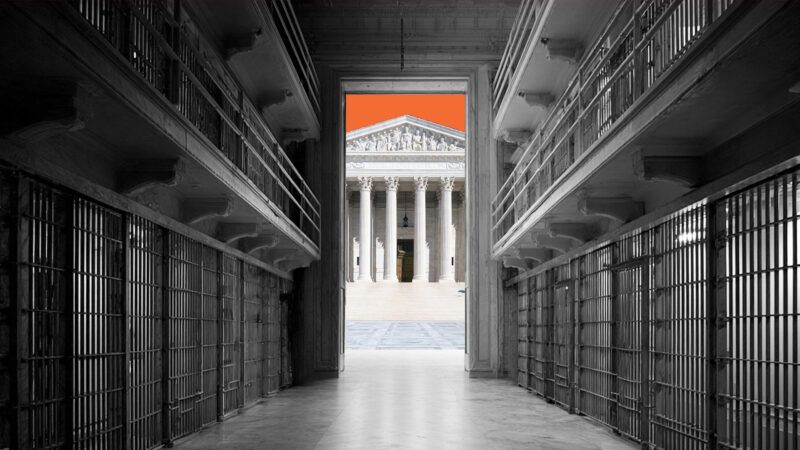Prison Guards Forcibly Cut a Rastafarian Inmate's Dreadlocks. SCOTUS Will Decide If They Can Be Sued Over It.
The Supreme Court will hear Landor v. Louisiana Department of Corrections and Public Safety this fall.

When Louisiana prison guards told a newly arrived Rastafarian inmate named Damon Landor that he was required to cut off the knee-length dreadlocks that he had been growing for decades as part of his religious practice, Landor produced a copy of a three-year-old decision by the U.S. Court of Appeals for the 5th Circuit, which held that the state's prison grooming policy, which prohibited dreadlocks, was illegal as applied to Rastafarians under the terms of the federal Religious Land Use and Institutionalized Persons Act of 2000.
But instead of adhering to the 5th Circuit's unambiguous judgment, the guards threw Landor's copy of that ruling in the trash (literally), handcuffed him to a chair, and forcibly shaved his head.
Now, Landor is fighting for his right to hold those prison officials individually liable for their conduct. This fall, the U.S. Supreme Court will hear oral arguments in his case. The stakes are high not only for religious liberty, but also for the crucial importance of imposing greater accountability on rights-violating government agents.
You’re reading Injustice System from Damon Root and Reason. Get more of Damon’s commentary on constitutional law and American history.
To be sure, the Supreme Court has not exactly done such a stellar job in recent years when it comes to holding rights-violating government agents to account. In fact, under the Court's bizarro world doctrine of qualified immunity, "the federal courts will acknowledge that a police officer violated the Constitution but then deem the officer not civilly liable for his unconstitutional actions because there was no prior court decision explicitly frowning on the same behavior." All too often, injured parties seeking redress for blatant law enforcement abuses are effectively locked out of federal court.
At the same time, however, the Supreme Court's recent activity at the intersection of religious liberty and government accountability has been somewhat more promising.
In Tanzin v. Tanvir (2020), the Supreme Court held that the Religious Freedom Restoration Act of 1993, which said that injured parties may sue to obtain "appropriate relief" when their rights are violated by the government, included the ability to sue federal officials in their individual capacities for damages.
At issue before the Supreme Court this fall in Landor v. Louisiana Department of Corrections and Public Safety is whether the same interpretation of the Religious Freedom Restoration Act that prevailed in Tanzin should now determine the meaning and scope of the Religious Land Use and Institutionalized Persons Act. In other words, if a federal prison guard had forcibly shaved Landor's head, Landor would be able to sue that guard individually for damages under Tanzin. The Landor case asks SCOTUS to decide whether the same thing should also be true when it comes to suing a state prison guard.
For advocates of religious liberty, civil liberty, and greater government accountability, this case is definitely one to watch.


Show Comments (30)